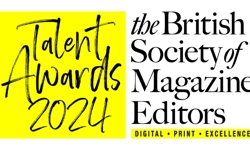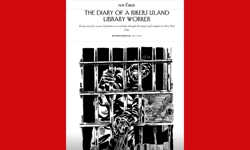This month, Metro UK will celebrate its 10th anniversary, a special occasion for a paper mainly launched as ‘damage control’ to prevent the London invasion of Metro International. The history of freesheets in the UK started with a battle in London, a familiar spectacle for current media watchers. The scene is the same, but the players have changed - Metro International is now Associated’s international partner, while its new adversary is Rupert Murdoch’s News International. And there was no quiet interbellum between the two newspaper wars. The first ten years of free papers in the UK have been riddled with conflicts over subway contracts, price wars on advertising, complaints about fair trading, launching spoilers and starting lawsuits. And there are no signs that ‘peace’ will be prevalent in the coming years.
On 16 March 1999, Associated Newspapers, publisher of the Daily Mail and the Evening Standard, launched Metro in London, using the knowledge of former Metro International employees. The paper expanded to Birmingham and Manchester in November, and later to Newcastle (2000), Scotland, Yorkshire (2001), Nottingham, Derby, Leicester, Bristol (2004), Liverpool and Cardiff (2006). Circulation has increased to 1,360,000 copies in 2009 – 750,000 of which are distributed in London.
The franchise model
Associated was able to prevent Metro International from launching in London, but was less lucky in Newcastle were the Swedes started Morning News (they could not use the ‘Metro’ brand for legal reasons) in 2000. Having such a small footprint in the UK proved to be a problem; the assets of Morning News were sold within a year to Trinity Mirror who started a Metro franchise. The Manchester Metro is also the result of a merger. After – again - legal battles over the Metro name, the Guardian Media Group launched the Manchester Metro (a daily version of their free weekly) to compete with Associated’s News North-West (a Metro paper under another name). In 2001, the titles merged and went on as a GMG-franchise. Also in Scotland, Birmingham, Yorkshire, Liverpool and Cardiff, Metro is a franchise; a model designed to stop the local publisher starting their own free morning daily, which explains the free daily monopolies in the UK, something very rare elsewhere.
The mixed model
Outside London, only in Manchester, Liverpool and Scotland is there some competition between free dailies; ‘some competition’ because it concerns evening papers in all cases, not threatening Metro in the morning. GMG launched a free MEN Lite edition of the Manchester Evening News in March 2005. After a year, MEN Lite closed down but from the ashes the free Manchester Evening News emerged. 50,000 free copies of the paid edition were distributed in the city centre. The model is a mixed success. At the start, MEN sold 130,000 copies – this dropped to 80,000 in 2008 although total circulation increased to 180,000. In Liverpool, a somewhat similar model is used by the Liverpool Daily Post (Trinity Mirror): the paper distributes 6,000 free copies in office buildings and on the streets in the centre. In Scotland, the Daily Record (Trinity Mirror) launched Record PM, a free afternoon edition, in 2006; circulation is less than 20,000. Brighton was the scene of a free newspaper mini-war when Newsquest (the Argus) launched their daily Argus Lite against a Brighton Metro edition in 2006 – a year later both freesheets were gone.
Murdoch’s London plans
The real battlefield of course, is London. After fending off the Swedes in 1999 there was peace until December 2001 when Murdoch’s News International planned to launch a London free paper. Negotiations with Railtrack were already underway; Metro’s contract would end in March 2002 (Metro still had a long term contract with the London Underground which was being contested before the Office of Fair Trading). It would be a paper with a morning (240,000 copies) and an evening (400,000 copies) edition. In May 2002, however, the plan was shelved after Associated renewed the Railtrack contract.
Less than two years later, in October 2004, Richard Desmond (Daily Express, Daily Star) also said he was planning a free London evening paper, named London-i. The Evening Standard countered this with its own spoiler: on December 14, 2004 the ‘lunch edition’ Standard Lite was launched, replacing the first editions of the Evening Standard. The Lite was also meant to prevent other publishers entering the market, a real possibility because there was still a lawsuit pending on the exclusive Metro deal with the London Tube. The pressure was further increased after mayor Ken Livingstone said he wanted the exclusive distribution deal between Metro and London Tube changed so that another free (afternoon) paper could enter the market. Livingstone wanted to invest in the improvement of the underground but had political reasons as well, as there was not much love lost between the Associated titles and the Labour mayor.
The Office of Fair Trading decided (after two years) in April 2005: the afternoon slot was to be opened up although it would take 18 months before a final decision could be expected. Associated, Richard Desmond, News International, Metro International and the Telegraph Group are believed to have issued a bid. Also the Guardian made plans for a new free daily. Transport for London expected revenues of £4.6 million. To spoil the market further, Standard Lite doubled circulation to 150,000.
Waiting for the final bids, the London market got more crowded after Lawson Muncaster, ex-Metro International’s vice president for global sales, launched City AM in September 2005. City AM has been thinking about new editions for Edinburgh and Manchester (and beyond, even Frankfurt, Hong Kong, Tokyo and New York were on the list) but shelved the plans after the recession hit.
It’s War!
Livingstone’s plan to get rich backfired. The tender for the subway contract was cancelled; the bids were too low. News International did not wait for the results. In September 2006, 400,000 copies of thelondonpaper were distributed outside tube stations. A week before, Standard Lite was converted to London Lite while the circulation was increased to 400,000. Thelondonpaper increased distribution in the next years to 500,000.
With 900,000 copies of London Lite and thelondonpaper distributed in the evening (not counting the 140,000 free copies of the Evening Standard) and 850,000 Metros and City AMs in the morning, the chances of making money are minimal. Thelondonpaper lost nearly £17m in the first ten months because of high launch costs and disappointing ad sales. For 2008, better ad sales were expected but this was before the recession. Daily Mail and General Trust, the owner of Associated Newspapers, called the investment of £15m in Lite "not enormously expensive".
Litter bugs
The papers have other problems as well. Tube Lines Limited, the company that cleans the underground, estimated that litter increased by 48% while Westminster City Council threatened to ban London Lite and thelondonpaper from the city centre if both titles don’t pay a substantial sum for cleaning up the city centre. The cleaning issue is far from resolved and causes bad publicity with Justin Canning’s Project Freesheet (www.projectfreesheet.org) permanently criticising freesheets for littering.
News International and Associated Newspapers are also engaged in a ‘phony’ expansion by trademarking their brands and registering internet domain names. Associated trademarked the ‘Lite’ name for 15 UK markets and bought ‘.co.uk’ web addresses for ‘Lite’ for two dozen cities. News International was more modest and only claimed thebirminghampaper, thebristolpaper, theglasgowpaper, themanchesterpaper, thehullpaper, theedinburghpaper, theliverpoolpaper, theyorkpaper, thecardiffpaper and theleedspaper. None of these have launched so far.
Anyone making money?
When launching a spoiler, publishers want to protect their paid paper in the firm belief that free papers will steal their readers and hurt the advertising market. But when faced with a competing free newspaper, they are faced with a totally different situation. No matter how hard you try, the bottom line is that free dailies mainly compete among themselves. Comparing readers of thelondonpaper and London Lite makes this painfully clear: the same profile in terms of age (80% below 45), wealth (75% ABC1) and sex (40% women). Content hardly plays a role; only a different distribution method will result in a different readership, something demonstrated by City AM.
In a recession, newspapers have proved over a long period of time and in many different markets to be more vulnerable than other media, mainly because of the sort of advertising they are relying on: jobs, retail, real estate, consumer goods and classified. Within this group, free newspapers, because they are totally dependent on advertising, feel the heat even more. Fierce competition in such a situation might be very problematic but can be dealt with if you have a big company behind you, it could be fatal if you’re on your own.
In many European markets, the number of free dailies increased during the first few years of this decade but dropped back again recently because of this: fierce competition between free dailies in a declining market is no fun. In Sweden, the number of free dailies increased from two to three in 2006 and back to one in 2008; in Denmark, there were two free dailies in 2005, six in 2006 and three now; in Spain, the two free dailies saw two competitors launched in 2005 and 2006, in 2009 only three remain; in the Netherlands, the number doubled from two to four in 2007 and was down to three a year later; in the Czech Republic, there were four national free dailies in 2006, now there’s only one left. When you’re alone in a booming market, you can make lots of money, and even two can be happy. But three of more competitors in a declining market is a nightmare. In the London evening market, even two seem to be a crowd.
FEATURE
The UK free paper battlefield
Launched in 1999 to keep the Swedes out, Metro has since spread across the UK. Its success has led to the mixed free/paid model adopted by some papers, to other publishers piling in to get a slice of the freesheet action and to the current melee in London. How will it all end? Piet Bakker looks back over a tumultuous decade.










